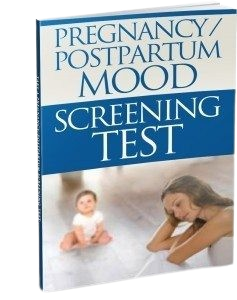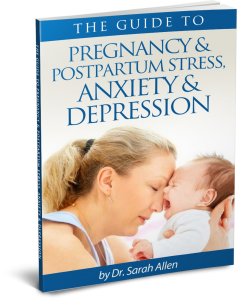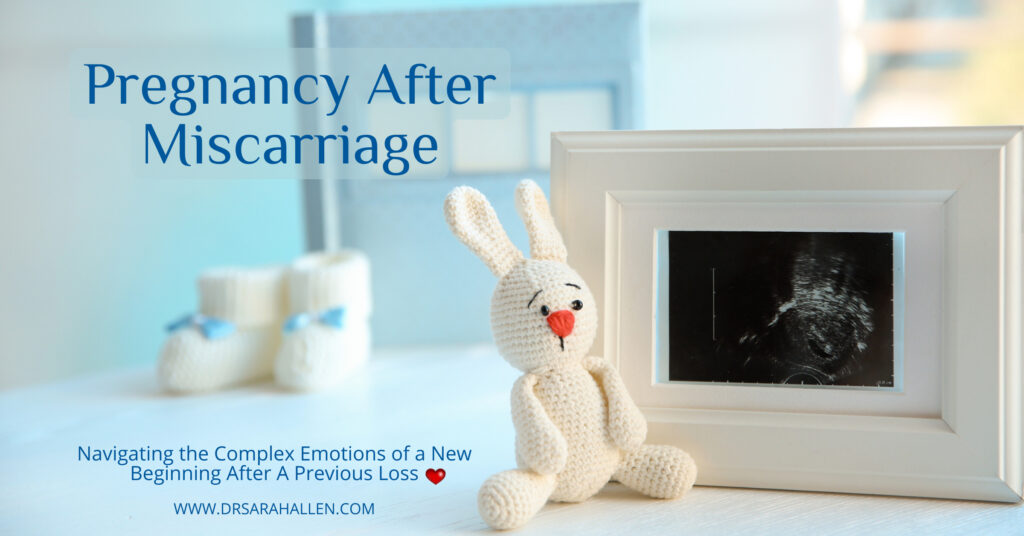
The journey to grow a family can be filled with hope and excitement, but sometimes, the path can also be fraught with challenges, such as experiencing fertility issues. For many couples, fertility treatments become essential in realizing their dreams of parenthood. While these treatments offer promising options, they can also bring about emotional upheaval and stress, underscoring the importance of nurturing one’s mental health. Seeking therapy can play a pivotal role in maintaining emotional well-being as couples navigate the complexities of fertility treatments. I have worked with a lot of women, and couples, who have tried the initial treatments such as Clomid, as well as intrauterine insemination (IUI) and in vitro fertilization (IVF). Fertility treatments can be for a first child or second, and often women who come to see me have experienced miscarriages and I have separate posts that provide support and information about how to care for yourself after a miscarriage at the end of this article. None of this is easy and it is good to have support while going through this difficult time.
In this article, I will discuss how therapy facilitates emotional support to individuals and couples undergoing fertility treatments, with particular IVF. By diving into therapy’s benefits, you’ll learn how it equips individuals with coping mechanisms, helps them navigate challenging emotions, and provides support during this difficult journey. I can’t stress enough how importance mental health support is during this journey and I will explore how therapy can offer invaluable assistance in navigating the complex emotions that often accompany fertility treatments.
How Therapy Can Help During Fertility Treatments
Understanding the Emotional Impact of Fertility Treatments
Embarking on fertility treatments can evoke a range of emotions, as couples confront various challenges and uncertainties. The following factors can contribute significantly to anxiety, stress, and emotional turmoil during fertility treatments:
- Financial Strain: The costs associated with fertility treatments, especially IVF, can add financial pressure and exacerbate stress levels.
- Physical Challenges: The hormonal medications and medical procedures involved in fertility treatments can cause physical discomfort and side effects, contributing to emotional distress.
- Relationship Strain: The demands and stressors associated with fertility treatments can create tension within couples, potentially amplifying feelings of isolation or conflict.
- Social Comparisons: Witnessing friends, family members, or coworkers experiencing seemingly effortless pregnancies can heighten feelings of sadness, anger, and inadequacy.
The Role of Therapy in Supporting Emotional Well-being During Fertility Treatments
Therapy can play a crucial role in mitigating the emotional challenges associated with fertility treatments by providing tools, guidance, and support. Here are key ways in which therapy assists individuals and couples throughout the fertility journey:
- Coping Strategies: A mental health professional can offer tailored coping strategies to navigate the unique challenges and emotional experiences faced during fertility treatments and IVF.
- Emotional Processing: Therapists provide a safe space for individuals and couples to express and process complex emotions related to their fertility journey, promoting emotional healing and clarity.
- Improved Communication: Obtaining therapeutic support can enhance communication between partners, allowing them to navigate the fertility process more effectively and collaboratively.
- Stress Reduction: Therapy can help individuals and couples reduce stress by providing relaxation techniques and approaches for managing anxiety during fertility treatments.
The Benefits of Specialized Infertility Therapists
Seeking support from mental health professionals who specialize in infertility can optimize the therapeutic experience, providing targeted assistance tailored to fertility challenges. Here’s how specialized infertility therapists can support the unique needs of individuals and couples undergoing fertility treatments:
- Knowledge and Expertise: Specialized infertility therapists possess expert knowledge and understanding of fertility treatments and the common challenges that accompany the process.
- Focused Support: These therapists can provide targeted counseling to address the specific emotions, thoughts, and experiences related to the fertility journey and techniques such as IUI and IVF.
- Informed Guidance: A specialized infertility therapist can help couples navigate complex decision-making processes, providing informed insights and guidance that’s tailored to their unique situation.
- Validation and Understanding: With their expert knowledge, infertility therapists offer validation, empathy, and understanding without judgment, ensuring clients feel heard, respected, and supported throughout their journey.
Balancing Emotional Needs with Fertility Treatment Planning
As individuals and couples invest time, energy, and resources into fertility treatments, it’s essential to balance these demands with self-care and emotional nurturing. Consider the following strategies to maintain emotional well-being amidst fertility treatments:
- Set Realistic Expectations: Establishing reasonable expectations about treatment outcomes, success rates, and the duration of the fertility journey can help alleviate anxiety and disappointment.
- Establish Boundaries: Communicate and enforce personal boundaries with others regarding discussing fertility treatments or pregnancy-related topics to protect your emotional well-being.
- Schedule Self-Care: Prioritizing self-care by carving out time for relaxation, hobbies, or activities that promote joy and contentment can help mitigate stress and maintain mental health.
- Stay Informed: Familiarize yourself with the fertility treatment process, potential challenges, and support resources, empowering you to make informed decisions and manage emotions effectively.
By understanding the emotional impact of fertility treatments and recognizing the value of therapy in navigating these challenges, individuals and couples can better equip themselves for this difficult emotional journey. Through specialized infertility individual therapy, couples therapy and self-care strategies, the fertility treatment experience can be one where emotional support and well-being remain at the forefront.
Therapy and Support on Your Fertility Journey
Psychologically based counseling offers significant benefits for individuals and couples undergoing fertility treatments. By providing targeted coping strategies, emotional support, and helping you process your emotions about this difficult journey, therapy can play an essential role in fostering mental health during this challenging phase.

Dr. Sarah Allen has 25+ years of experience in private practice helping women to transition to being the mom they want to be. She is the Founding Director of the statewide non-profit Postpartum Depression Alliance of IL. She also specializes in pregnancy loss & infertility & has published research on postpartum depression and traumatic childbirth.
If you would like to work with Sarah, please phone her at 847 791-7722 or on the form below.
If you would like to read more about me and my areas of specialty, please visit Dr. Sarah Allen Bio. Dr. Allen’s professional license only allows her to work with clients who live in IL & FL & the UK and unfortunately does not allow her to give personalized advice via email to people who are not her clients.
Dr. Allen sees clients in person in her Northbrook, IL office or remotely via video or phone.

What Can I Read That Helps Me While I Am Waiting For My First Appointment With Sarah?
If you feel that you may be experiencing pregnancy or postpartum mood disorder, or worry that you may be at risk of developing it, please download my free booklets below.
See each specific webpage to download one or many.












